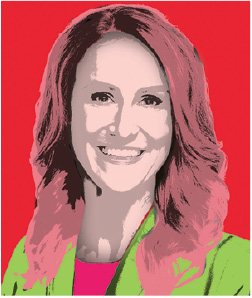Proust questionnaire: Dr Caitlin Dunne
 |
| Dr Caitlin Dunne |
What profession might you have pursued, if not medicine?
I was in the clinical psychology program at McGill before medical school.
Which talent would you most like to have?
The ability to heal 100% of the time. I think every doctor wants that.
What do you consider your greatest achievement?
Writing for the popular media has become a passion. It gives me a platform to raise awareness for women’s health and battle the stigma of infertility.
Who are your heroes?
I have two: my late grandmother and my husband, each for their character and their feminism.
What is your idea of perfect happiness?
Happy children.
What is your greatest fear?
That gender equality will not be achieved within my daughter’s lifetime.
What is the trait you most deplore in yourself?
That I cannot think of a witty answer to this question.
What characteristic do your favorite patients share?
Optimism.
Which living physician do you most admire?
Dr Roberta Bondar.
What is your favorite activity?
Running at sunrise while listening to the New York Times podcast.
On what occasion do you lie?
I don’t admit when I am having a bad day. I say something positive instead.
Which words or phrases do you most overuse?
Congratulations, you’re pregnant.
What is your favorite place?
Sitting on the dock at the cottage.
What medical advance do you most anticipate?
Gene editing in embryos.
What is your most marked characteristic?
Hard work and consistency.
What do you most value in your colleagues?
Integrity. My partners are known for it.
What are your favorite books?
I like listening to David Sedaris’s audiobooks.
What is your greatest regret?
Not learning a second language. As a result, my kids are learning three.
What is the proudest moment of your career?
Joining the Pacific Centre for Reproductive Medicine as a co-director right after fellowship.
What is your motto?
“If a job’s worth doing, it’s worth doing well.” I read that in an Amelia Bedelia book when I was a kid and it has stuck with me.
How would you like to die?
Old, in my sleep, after eating a bunch of cupcakes with my family.
hidden
Dr Dunne is a co-director at the Pacific Centre for Reproductive Medicine (PCRM) and a clinical assistant professor at the University of British Columbia. She specializes in reproductive endocrinology and infertility.

